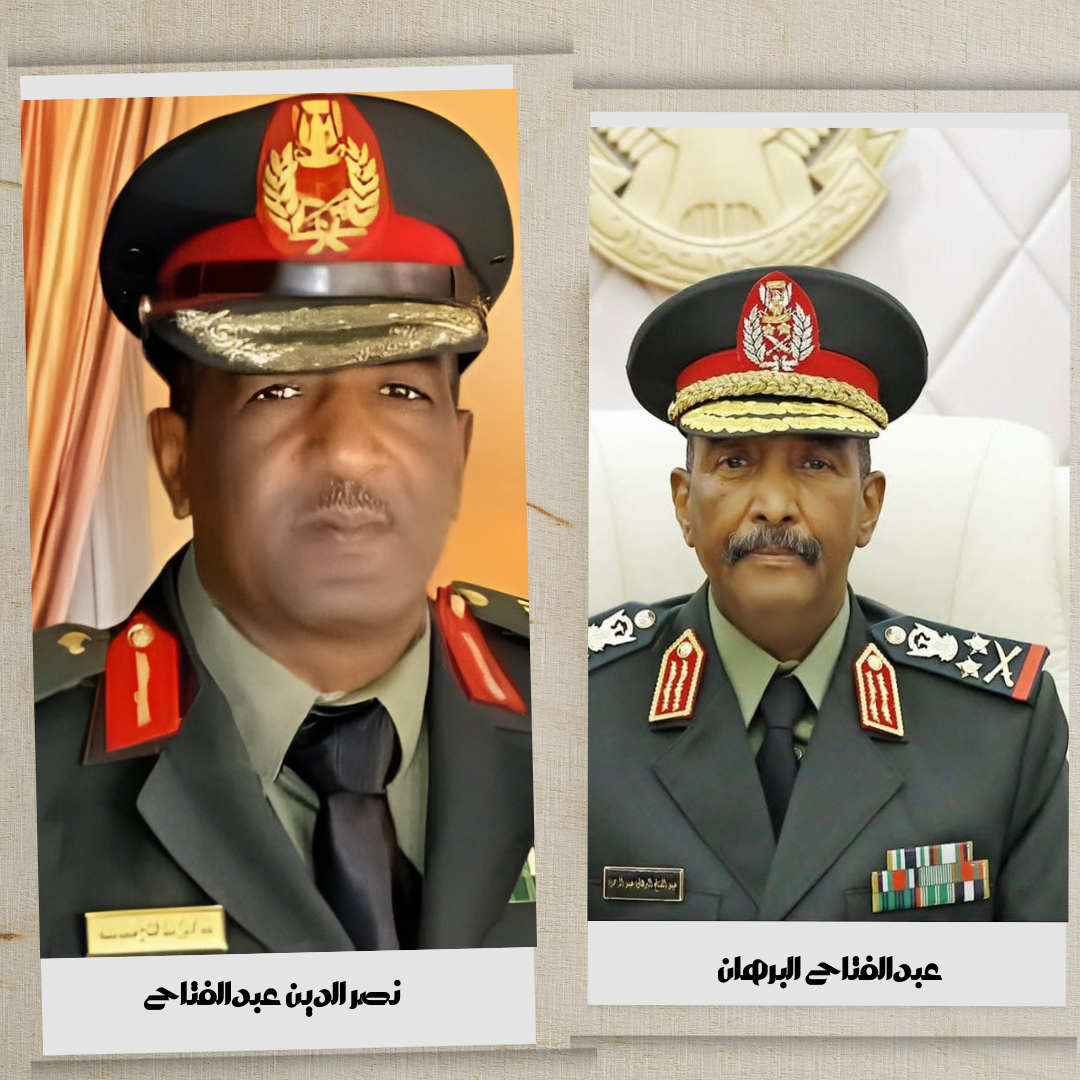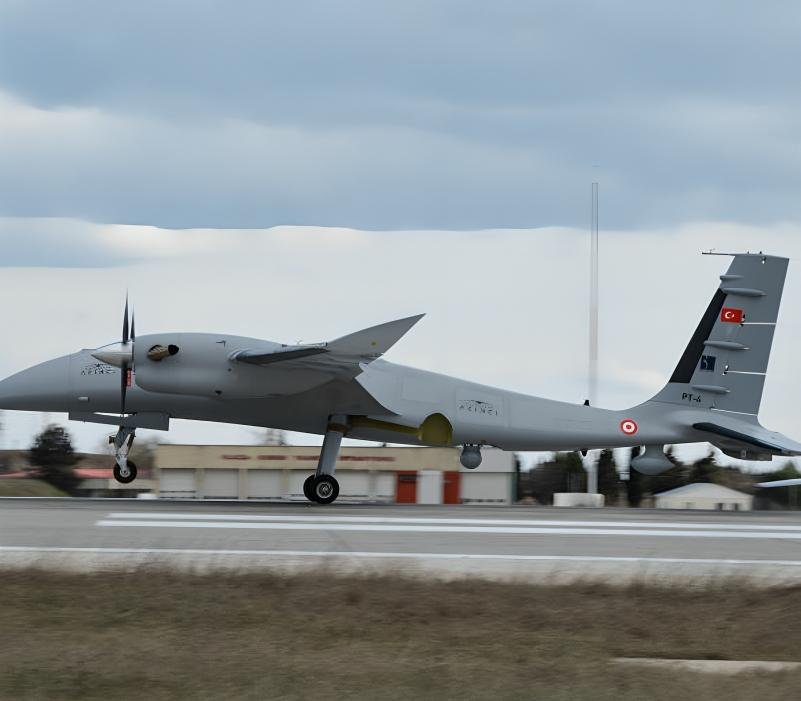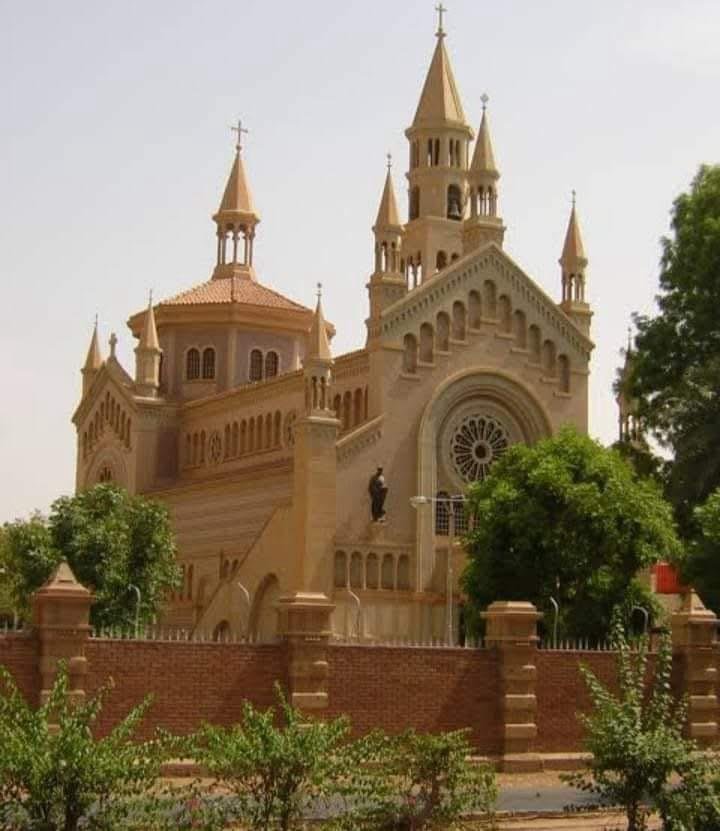Report SPT
Al-Burhan’s Fatal Ambitions: Close associates of General Abdel Fattah al-Burhan, the head of the Sudanese army, describe him as being pathologically obsessed with power, to the extent that he wouldn’t mind Sudan collapsing on its people if that would secure him the presidential seat. For this reason, his alliances are built solely on the condition of being accepted as leader, regardless of the ideological orientations of his partners. However, he harbors hostility towards democratic forces committed to peaceful power transition, and his recent speeches are rarely devoid of attacks and insults directed at the Democratic Civil Forces Coordination (Taqaddum).
Conversely, he seeks refuge in the arms of their adversaries and the enemies of democratic transformation — namely, the Sudanese Islamic Movement (the old regime) — under the illusion that they will eliminate the democratic forces standing in the way of his authoritarian ambitions. While this assumption might hold some truth given the movement’s violent history, it does not only topple his adversaries but also undermines his own future, effectively delivering himself to the slaughter, unaware of his fate.
A political observer notes that al-Burhan’s lust for power has blinded him, rendering him incapable of rational decision-making. The Islamic Movement, which ignited the war on April 15, 2023, by exploiting its influence and loyalists within the army and other security apparatuses, did not do so to help him ascend to power but rather to reclaim the rule it lost following the popular uprising of April 2019. To them, he is merely a tool for executing their orders, nothing more.
Al-Burhan, who deceived the world by presenting himself after Sudan’s revolution as a supporter of civilian democratic transformation and a partner to civilians in managing the transitional period, has been driven by his thirst for power into falling into the trap of the “dead horse.” He has entangled himself in massive crises, both present and future, to address minor issues that could have been resolved with limited concessions. In his reckless alliance with the Islamists against Sudan’s democratic forces, he now resembles a wild dog attempting to devour its prey amidst a pack of ravenous hyenas.
Deferred Conflict
Al-Burhan, who draws strength from and allies himself with the Sudanese Islamic Movement, believes he can use it as a bridge to ascend to power. He seeks to rule Sudan under its umbrella, but the Islamic Movement harbors far more distrust and resentment toward him than he does toward it. It views him as nothing more than an opportunist and an outsider to its project.
Nevertheless, the movement is postponing its confrontation with him until it concludes its war against the Rapid Support Forces. It is unwilling to engage in minor side battles with a segment of the military at this time. Instead, it plans to replace him with one of its more trusted and organized members from within the military, through a smooth removal process that avoids causing any disruptions or issues within the armed forces.
A Concerning Leak
On November 29 of last year, a leaked video from a seminar held by a Syrian faction of the Muslim Brotherhood in Turkey went viral. In the seminar, Abdul Hay Yousif, an Islamic cleric considered one of the leading figures of militant Salafism in Sudan, spoke. Abdul Hay, who has been residing in Turkey since the fall of the former regime in 2019, is one of the most prominent leaders of the Sudanese Islamic Movement. During his remarks, he stated that the Islamic Movement does not trust Abdel Fattah al-Burhan, mocking him and his character, describing him as lacking respectability. He further asserted confidently: “Al-Burhan cannot eliminate the Islamists because they are present inside his office.”
Abdul Hay Yousif’s remarks, published on Syrian Islamist websites, triggered significant concern and tension within the Islamic Movement as they exposed its intentions and genuine opinion of al-Burhan.
Faced with this immense embarrassment, the Sudanese Islamic Movement issued a feeble statement later that same evening, claiming that it respects the army and its leader. It denied that Abdul Hay Yousif was a member of the Islamic Movement, describing him instead as, “an Islamic preacher whose remarkable contributions to Islam are appreciated and respected.”
This denial sparked widespread ridicule among Sudanese citizens, with many taking to social media to sarcastically ask: “If Abdul Hay Yousif is not an Islamist, then who is?”
For his part, army commander Abdel Fattah al-Burhan took advantage of a visit to a military unit the following day, where he addressed soldiers, referring to Abdul Hay Yousif as a “takfiri.”
Of course, the Sudanese Islamic Movement was lying in its denial, as it had no choice but to disassociate itself from Abdul Hay Yousif after he placed it in a difficult position by revealing its true perspective on al-Burhan’s future.
We hereby publish a document dated November 14 of last year—two weeks before Abdul Hay’s controversial remarks—that proves Abdul Hay Yousif remains a senior member of the Sudanese Islamic Movement.
The document is a list of attendees at the leadership conference of the Sudanese Islamic Movement, held on November 14 in Istanbul. Abdul Hay Yousif’s name appears in the alphabetical list of attendees, under entry number 114.
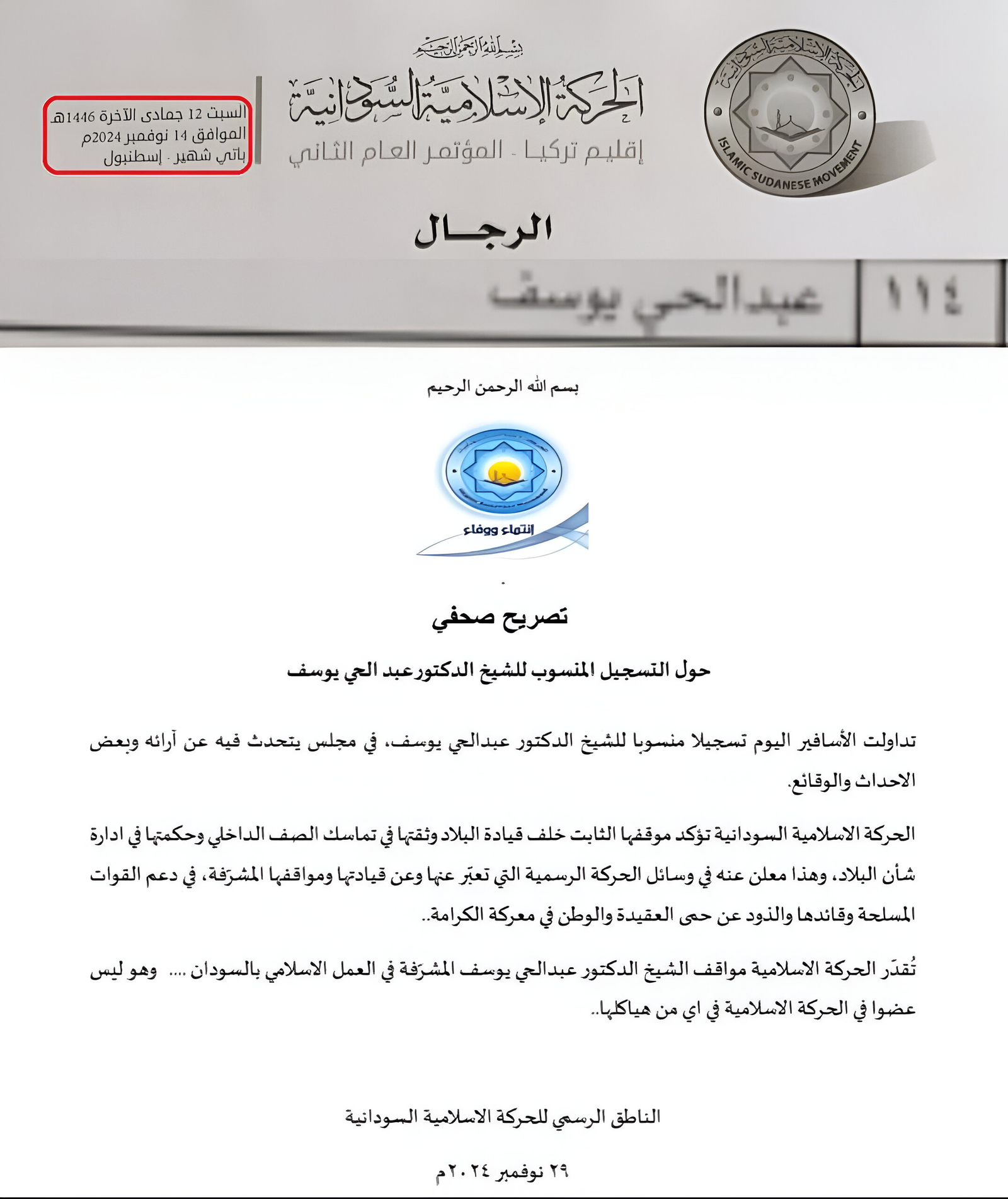
Qatar Chooses Al-Burhan’s Replacement
According to reliable sources close to decision-making centers within the Islamists, Abdul Hai Yousuf is not just an ordinary member but one of the leaders of the Shura Council in the Islamic Movement. The sources indicated that his leaked remarks reflect the views of the movement’s senior leadership, which considers the alliance with Al-Burhan to be a temporary one, intended to last only until the war concludes. The movement is reportedly preparing to replace him with a more reliable and organized officer from its ranks within the army.
The sources confirmed that the chosen replacement is Major General Nasr Al-Din Abdel Fattah, the current commander of the Armored Corps and a committed member of the Islamic Movement. He was selected in coordination with the State of Qatar, which considers Al-Burhan an untrustworthy figure. Arrangements were made for Nasr Al-Din to visit Doha in November last year, where he met with Qatari security officials. During these meetings, his candidacy as a replacement for Al-Burhan was approved. Qatar also provided him with accommodation, financial allowances, and facilitated the relocation of his family to Doha.
The sources also revealed an unprecedented increase in Qatari influence within the Sudanese army. Qatar has reportedly been covering the salaries of the army and allied Islamist militias for over a year, in addition to financing arms deals, including the purchase of drones.
Who is General Nasr al-Din Abdel Fattah?
Major General Nasr al-Din Abdel Fattah is an officer in the Sudanese army who graduated from the Military Academy (Class 36). He spent most of his career serving in the Armored Corps, where he held several positions, eventually becoming the Commander of the Armored Institute and later the Commander of the Armored Corps. He joined the Sudanese Islamic Movement while serving as a captain and was dismissed from the army after being accused of involvement in the failed military coup of July 2019, led by the then-Chief of Staff, Hashim Abdel Muttalib, who is known for his affiliation with the Islamic Movement.
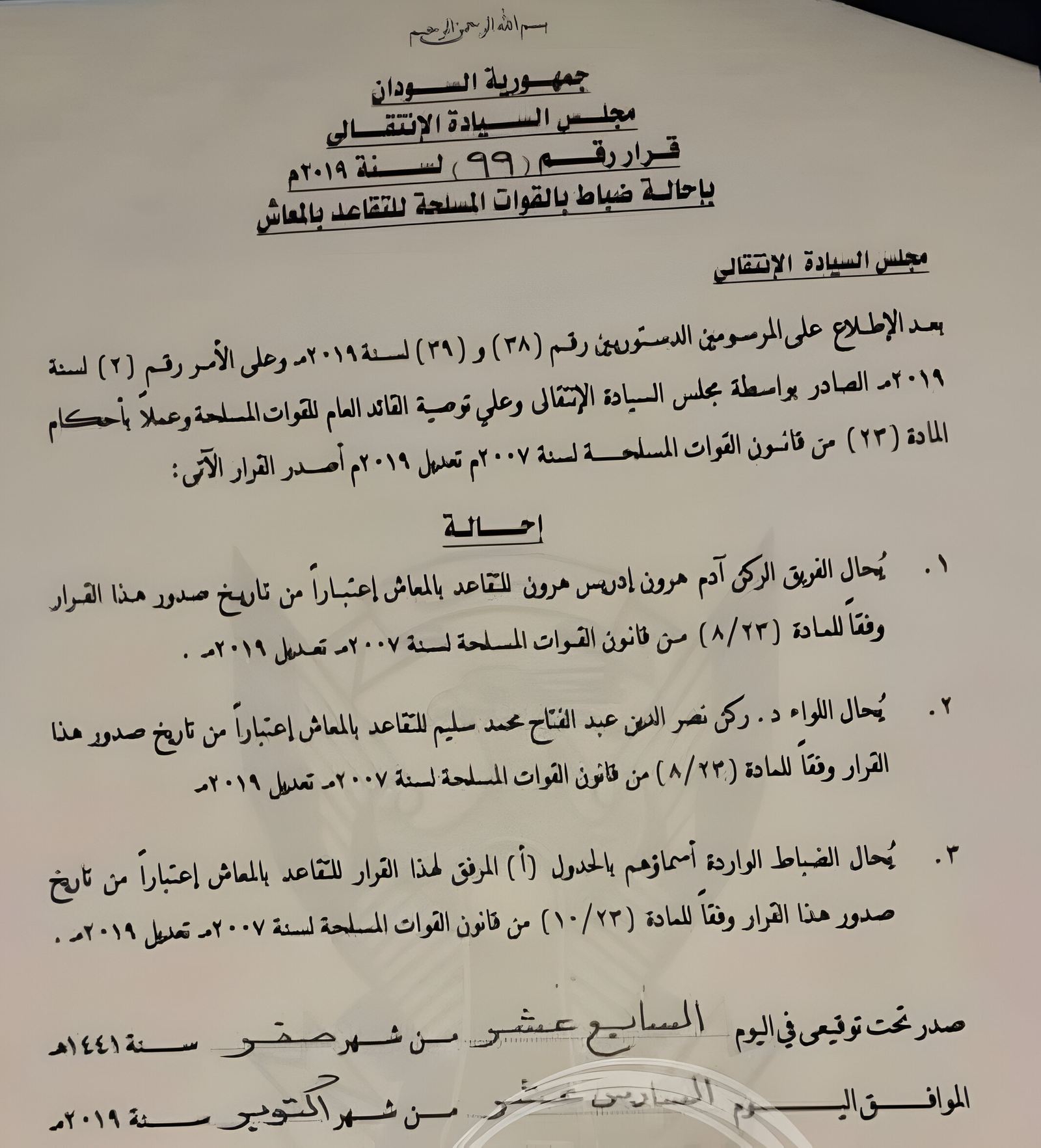
He was reinstated on the day the war broke out, April 15, 2023.

